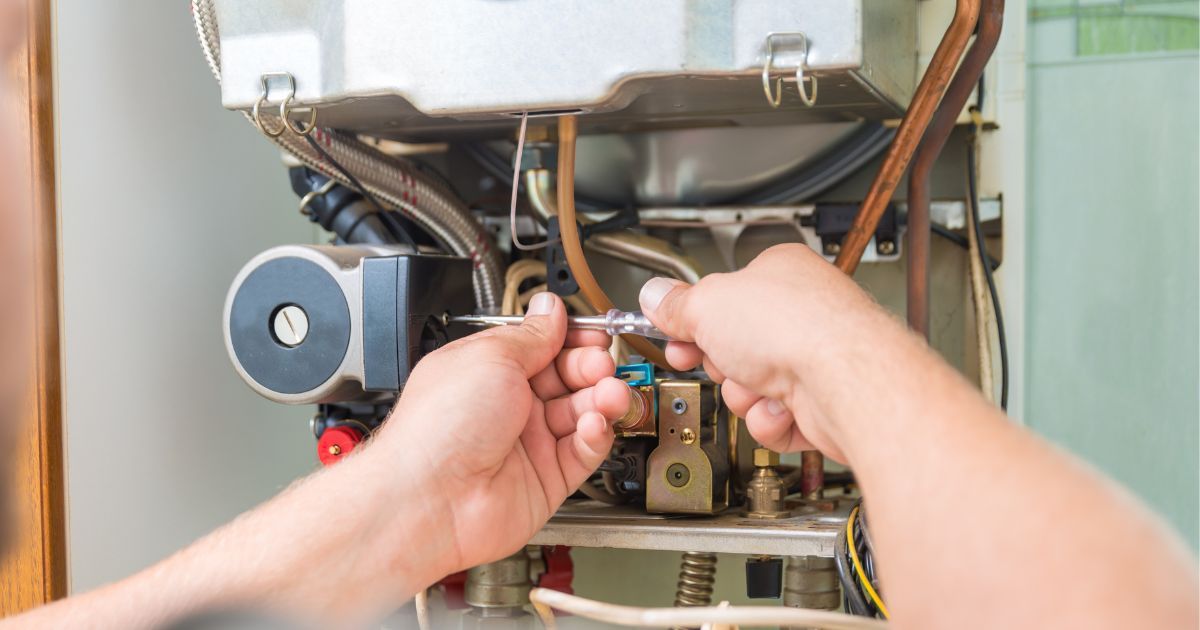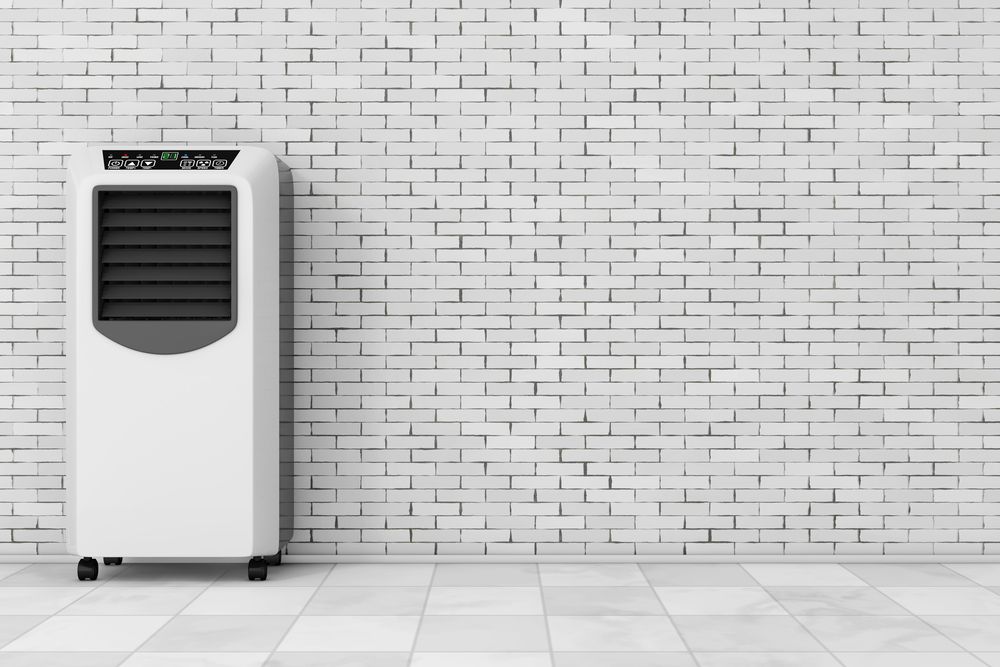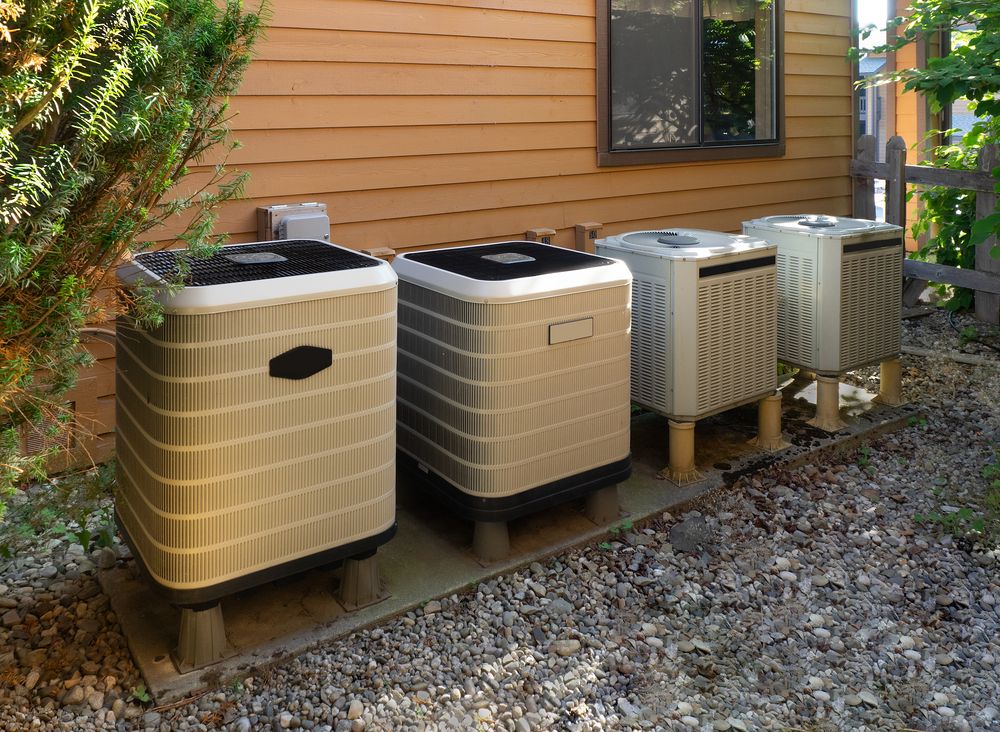Soggy Situations: Exploring the Top Reasons for Furnace Leaks in Burlington
As the leaves in Burlington’s City Park turn a fiery palette of oranges and reds, heralding the approach of cooler days, thoughts invariably turn to the warmth and comfort of our homes.
In the heart of North Carolina, a reliable furnace is as crucial as a well-worn quilt, providing that essential coziness we all crave. But what happens when your trusted furnace begins to show signs of a leak? It’s not just about the inconvenience—it’s about preserving the sanctuary of warmth you’ve come to rely on. Listed are several common reasons behind furnace leaks and provide you with insights to keep your Burlington home snug and dry all season long.
Unraveling the Mystery Behind Leaking Furnaces
When you encounter a puddle around your furnace, it’s a clear sign that something’s amiss. But deciphering the message behind the moisture is key to a quick resolution. A furnace leak can stem from several sources. Some are benign and easily fixed, and others are indicative of a more serious issue.
When it comes to HVAC in Burlington, NC, understanding the why and how of furnace leaks is the first step in safeguarding your home against potential damage and ensuring your heating system’s longevity.
The Top Reasons Your Furnace Might Be Leaking
No one expects their furnace to double as a water feature. Yet, here you are, faced with a leak that seems out of place. Let’s dive into the possible reasons why, from the benign to the critical, and how Barber Heating & Air can help you address each one with precision.
- Condensation
- A Cracked Heat Exchanger
- Humidifier Woes
- Installation Oversights
- Maintenance Neglect
Condensation – A Sign of Efficiency
When you notice your furnace creating condensation, it’s a testament to its high efficiency. This byproduct is common in modern systems that cool exhaust gases below the dew point, producing water as a result.
However, if you find your furnace is leaking, it could mean there’s a hiccup in the condensation process. The condensate line and drainage system should be checked first, as blockages here are often the culprits.
At Barber Heating & Air, we understand the nuances of HVAC systems in Burlington, NC, and can swiftly diagnose and remedy these issues, ensuring your furnace leaks are a thing of the past. Trust us to keep your system running efficiently because regular maintenance is your furnace’s best defense against these damp intrusions.
A Cracked Heat Exchanger – The Invisible Hazard
A cracked heat exchanger is a silent signal that your furnace could be veering into dangerous territory. It’s an issue that requires your immediate attention, as the heat exchanger is responsible for separating combustion fumes from the clean air in your home. Should you suspect this critical component is compromised, it’s time to call on us, your trusted Barber Heating & Air experts.
We bring our extensive experience for HVAC in Burlington, NC, to every service call, ensuring that a cracked heat exchanger is addressed with the urgency and expertise it demands. Remember, overlooking this could lead to carbon monoxide leaks, a risk we help you avoid with vigilant inspections and precise repairs.
Humidifier Woes
Dealing with a leak in your furnace can be perplexing, especially when the source is as unexpected as a humidifier. When you integrate a humidifier into your HVAC system, it’s designed to enhance comfort by adding necessary moisture to the air. Yet, if not maintained, it can become the source of your furnace leaks, leading to unwanted water around your unit.
You might be surprised to find that the fix is often straightforward—a task Barber Heating & Air is well-equipped to handle. Regular check-ups of all internal components, including humidifiers, by our HVAC experts in Burlington, NC, can prevent these minor issues from escalating. Let us ensure your furnace and humidifier are in harmony, providing you with the perfect balance of warmth and humidity.
Installation Oversights
A furnace is only as reliable as its installation—a truth Barber Heating & Air knows well. Leaking furnaces can often be traced back to installation oversights, such as improper sizing or incorrect assembly. These foundational steps must be executed flawlessly to avoid future leaks and inefficiencies.
We pride ourselves on providing Burlington, NC, with meticulous installation services that factor in every detail, from the size of your home to the specific requirements of your HVAC system. By choosing us for your installation needs, you’re opting for a job done right the first time, ensuring your furnace operates at peak performance with minimal risk of leaks or other maintenance issues down the line.
Maintenance Matters – Preventing Furnace Leaks
In the hustle of daily life, maintenance tasks can sometimes fall by the wayside, but when it comes to your furnace, regular upkeep is not just about efficiency—it’s a critical component of home safety. Neglect here can lead to furnace leaks, a clear sign your system is crying out for attention.
At Barber Heating & Air, we can’t stress enough the value of preventative care. A furnace unchecked is a problem unsolved, and issues from worn gaskets to corroded pipes can all lead to water where it shouldn’t be. We encourage you to take advantage of our HVAC expertise in Burlington, NC, and let us conduct thorough inspections and tune-ups. With our vigilant maintenance program, you can rest easy knowing that your furnace is in prime condition, operating safely, and leak-free.
Fortify Your Furnace Against the Unexpected
When the temperatures drop, a leaky furnace is the last thing any Burlington homeowner wants to handle. It’s more than just a nuisance. It can be a symptom of underlying issues that require prompt and professional attention.
At Barber Heating & Air, we are committed to ensuring your furnace is a source of comfort and not a concern. Don’t let furnace leaks dampen your winter. Contact us today to schedule a comprehensive inspection and maintenance service.
Let’s keep your home warm and dry, just as it should be.


